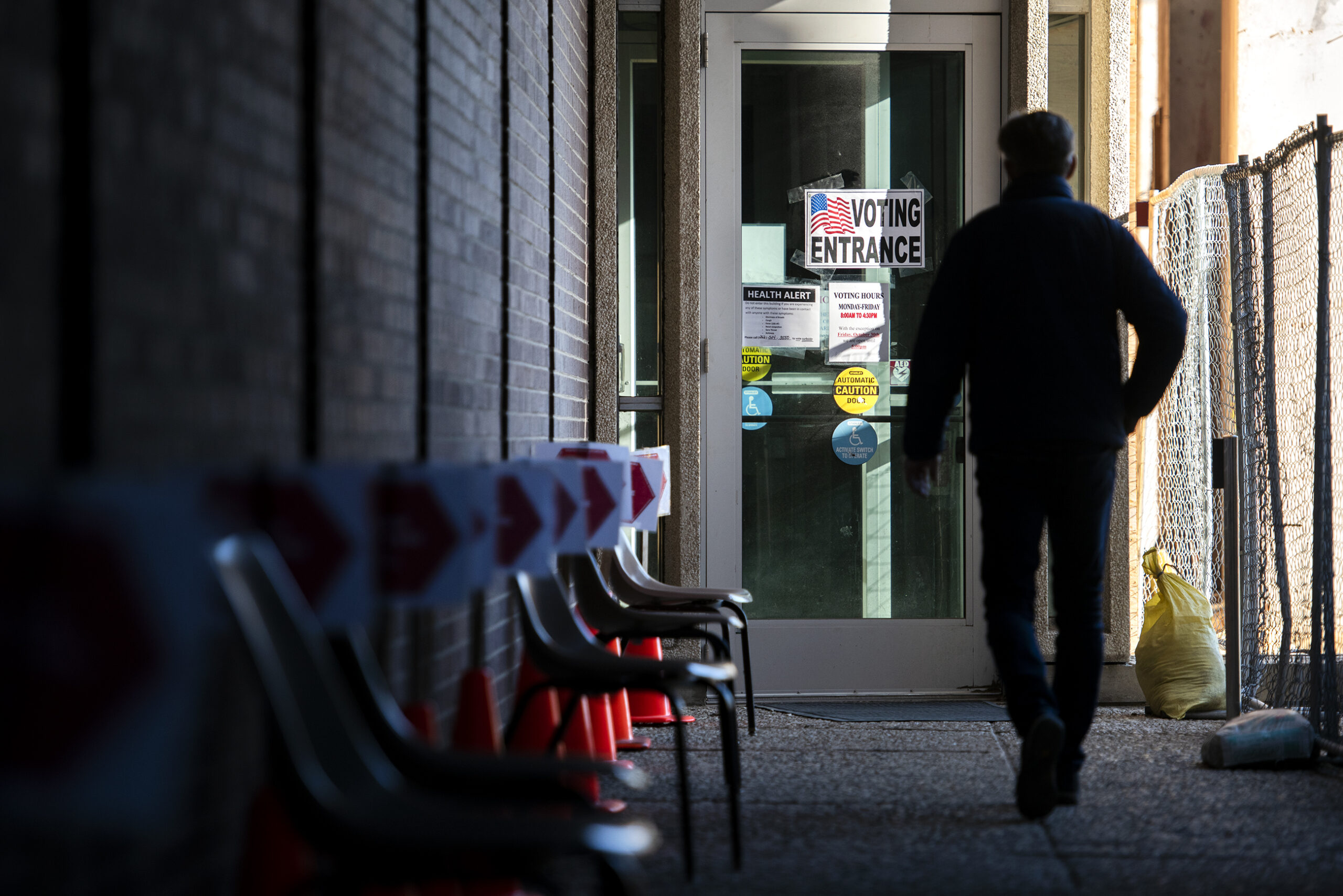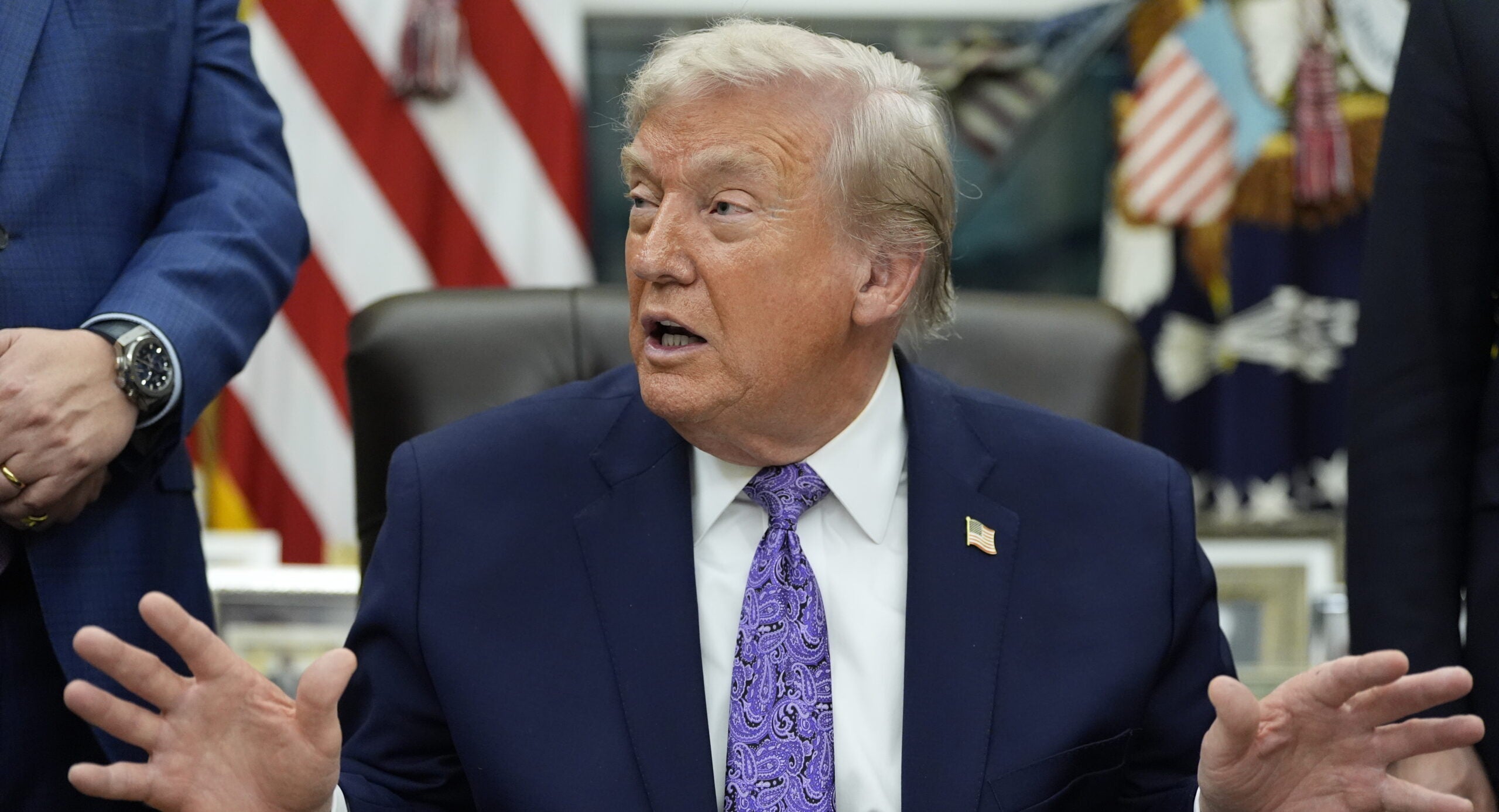Candidates and political groups will have to disclose when they use artificial intelligence to generate audio or video in ads aired in Wisconsin, according to a new law signed Thursday.
The bipartisan legislation comes in a national election year that some political experts say will be defined by AI-generated content and influence campaigns.
“This technology is not good or bad. Somebody can use AI to generate graphics to generate a jingle for a radio ad, to maybe make an animation that illustrates their views on the issues,” said Sen. Mark Spreitzer, D-Beloit, who co-authored the bipartisan bill. “But they can also use it to make it look like their opponent said and did something they didn’t.”
News with a little more humanity
WPR’s “Wisconsin Today” newsletter keeps you connected to the state you love without feeling overwhelmed. No paywall. No agenda. No corporate filter.
The law requires any audio or video campaign materials — whether produced by a candidate, PAC or other campaign entity — to disclose at the start and end of an ad if they used “synthetic media,” or media that is “substantially produced by means of generative artificial intelligence.”
Groups that violate the requirement will face fines. At least four other states currently have disclosure laws on the books, including California and Michigan, and similar legislation is pending in a handful of others, according to the National Conference of State Legislatures.
Spreitzer said disclosures allow voters to be more informed about the election information that they receive.
“We want voters to be able to understand that what they’re seeing may not be reality,” he told WPR.
When the bill passed the Assembly last month, Rep. Adam Neylon, R-Pewaukee, told colleagues AI was making it harder to know what’s real. Voters, he said, were being asked to determine truth from fiction.
“And to do that, they need the tools, they need disclosures, they need disclaimers when artificial intelligence is generating false representations,” Neylon said at the time.
For their part, voters are already skeptical about AI’s place in elections. According to a November study from the University of Chicago and AP/NORC, a majority of Americans are concerned about how AI can contribute to the spread of political misinformation.
Evers takes action on other election-related legislation
On Thursday, Evers took action on several other election bills.
- Evers signed a law that bars any municipality from closing more than half its polling places within 30 days of an election. That comes four years after polling place closures tied to the start of the COVID-19 pandemic sent Milwaukee’s 2020 spring primary election spiraling into chaos.
- The governor also signed a law that protects election workers’ personal information and increases the penalty for harming election officials. That law, which won’t go into effect until July 2025, also establishes whistleblower protections for people who report alleged election fraud.
- Evers vetoed a bill that would have given election observers more access to more of the election process, including the ability to move closer to election workers than is currently allowed. Evers said that increased the likelihood of intimidation or interference.
- The governor rejected a GOP bill that would have changed requirements for how people in nursing homes and care facilities submit absentee ballots. It would have allowed certain employees to help residents fill out their ballots, and strengthen requirements of witness information on absentee envelopes. Evers argued that tightening those technical requirements would allow votes to be invalidated “based on a minor mistake.“
Wisconsin Public Radio, © Copyright 2025, Board of Regents of the University of Wisconsin System and Wisconsin Educational Communications Board.






